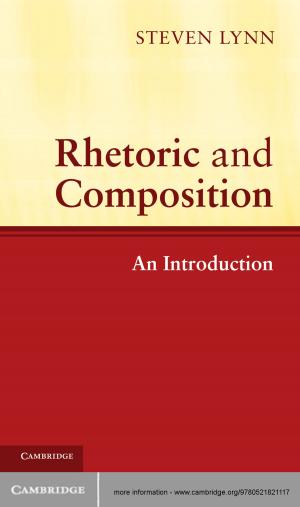Proportionality and Deference under the UK Human Rights Act
An Institutionally Sensitive Approach
Nonfiction, Reference & Language, Law, Constitutional, Social & Cultural Studies, Political Science| Author: | Alan D. P. Brady | ISBN: | 9781139411462 |
| Publisher: | Cambridge University Press | Publication: | May 3, 2012 |
| Imprint: | Cambridge University Press | Language: | English |
| Author: | Alan D. P. Brady |
| ISBN: | 9781139411462 |
| Publisher: | Cambridge University Press |
| Publication: | May 3, 2012 |
| Imprint: | Cambridge University Press |
| Language: | English |
The courts use the proportionality test to assess the Convention-compatibility of the full range of government action, from administrative decisions to primary legislation. In applying the test, the courts are often conscious of the need to pay some deference to the expertise and competence of other branches of government. This rigorous analysis of the relationship between proportionality and deference under the Human Rights Act sets out a model of proportionality, drawn from existing case law, which integrates deference within the multi-stage proportionality test. The model is 'institutionally sensitive' and can be applied to proportionality-based judicial review of all forms of government activity. The model is shown in operation in three fields that span the full range of government activity: immigration (administrative action), criminal justice (legislation) and housing (multi-level decisions).
The courts use the proportionality test to assess the Convention-compatibility of the full range of government action, from administrative decisions to primary legislation. In applying the test, the courts are often conscious of the need to pay some deference to the expertise and competence of other branches of government. This rigorous analysis of the relationship between proportionality and deference under the Human Rights Act sets out a model of proportionality, drawn from existing case law, which integrates deference within the multi-stage proportionality test. The model is 'institutionally sensitive' and can be applied to proportionality-based judicial review of all forms of government activity. The model is shown in operation in three fields that span the full range of government activity: immigration (administrative action), criminal justice (legislation) and housing (multi-level decisions).















